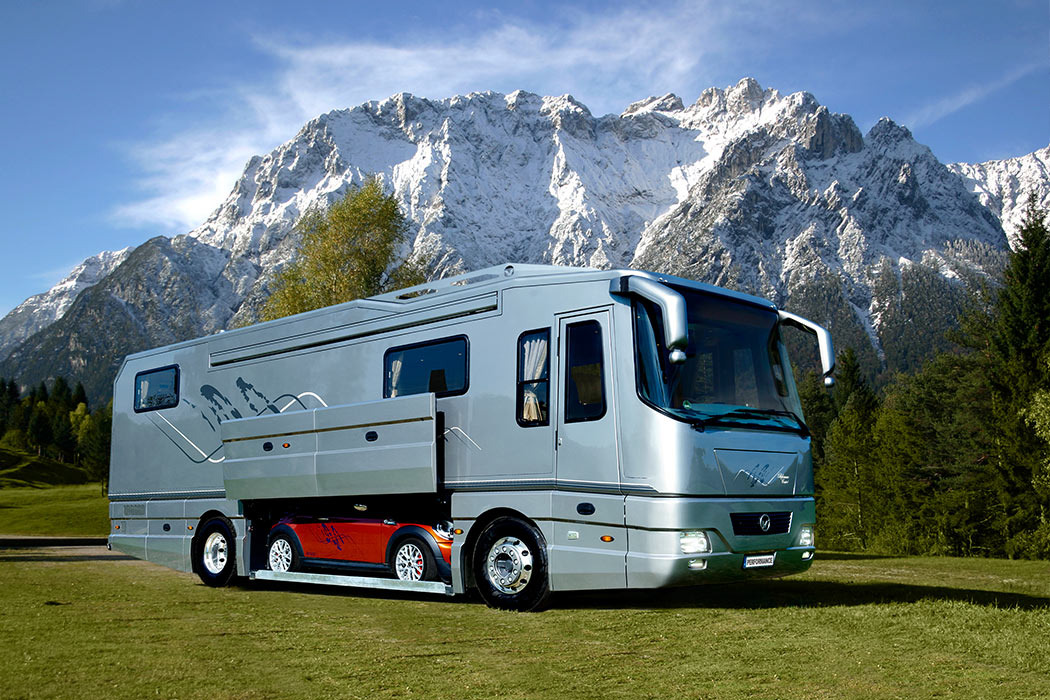
Buying a used recreational vehicle (RV) can be an exciting and cost-effective way to embark on your adventures. Whether you’re a seasoned traveler or a novice looking to explore the open road, purchasing a pre-owned RV offers the opportunity to find a suitable vehicle at a fraction of the cost. However, to ensure you make a wise investment, it’s crucial to carefully inspect the RV before making a purchase. In this article, we will guide you through the key aspects to consider when buying a used RV, helping you make an informed decision.
Assessing the Exterior
The first step in evaluating a used RV is to thoroughly examine its exterior. Check for any signs of damage, such as dents, scratches, or rust. Pay close attention to the roof, as leaks can cause significant problems. Look for cracks or gaps around windows, doors, and vents that could indicate poor sealing. Inspect the tires for wear and tear, ensuring they are in good condition. Additionally, inspect the RV’s exterior for signs of water damage, such as bubbling or discoloration.
Examining the Interior
Once you are satisfied with the exterior, it’s time to inspect the interior of the RV. Begin by checking the overall cleanliness and condition of the living space. Look for any signs of mold, mildew, or pests. Test all doors, windows, and locks to ensure they function properly. Pay attention to the flooring, walls, and ceilings, checking for any signs of water damage, stains, or structural issues. Inspect the storage compartments and cabinets, making sure they are secure and in good working order.
Checking the Mechanical Components
A crucial aspect to consider when buying a used RV is its mechanical components. Start by examining the engine and transmission. Check the oil levels and look for any signs of leakage. Assess the condition of the battery and test all the lights, including headlights, taillights, and turn signals. Inspect the brakes, suspension, and exhaust system. If possible, take the RV for a test drive to assess its overall performance, including acceleration, braking, and steering.
Inspecting the Electrical Systems
The electrical systems in an RV are essential for a comfortable and functional experience on the road. Begin by inspecting the RV’s electrical panel, ensuring it is in good condition and properly labeled. Test all the switches, outlets, and appliances, making sure they work as intended. Check the battery system, including the house batteries and the charging system. If the RV has a generator, examine its condition and functionality. It’s important to verify that all electrical systems are safe, reliable, and meet your specific needs.
Evaluating the Appliances and Amenities
RVs often come equipped with various appliances and amenities, including refrigerators, ovens, microwaves, air conditioning units, and heating systems. It’s important to inspect these appliances to ensure they work correctly and are in good condition. Check for any signs of wear and tear or damage, and verify that all appliances are compatible with the RV’s electrical and plumbing systems. Consider your needs and preferences and ensure that the RV’s appliances and amenities meet them.
Assessing the Structural Integrity
The structural integrity of an RV is crucial for your safety and comfort on the road. Look for any signs of damage to the frame, chassis, or body of the RV. Inspect the roof, floors, and walls for any signs of wear and tear or damage. Check the seals around doors and windows to ensure they are secure and functioning correctly. Verify that the RV’s leveling system works and that the RV sits level when parked. Ensure that the RV is structurally sound, stable, and safe to drive and live in.
Reviewing the Documentation and History
Before finalizing your purchase, it’s essential to review the RV’s documentation and history. Verify that the RV’s title is clean and that it has not been salvaged or rebuilt. Check the maintenance and service records, ensuring that the RV has been properly maintained and serviced. Review any warranties or insurance policies, ensuring that they are valid and transferable. Additionally, research the RV’s history and reputation, including any recalls or known issues with that particular make and model.
Considering the Price and Negotiating
Once you have thoroughly inspected the RV and reviewed its documentation and history, it’s time to consider the price and negotiate with the seller. Research the market value of the RV and compare it with the asking price. Take into account any repairs or upgrades that may be necessary and factor them into your offer. Be prepared to negotiate with the seller and ask for a lower price or additional amenities or services. Ensure that you are comfortable with the final price and that it aligns with the RV’s condition, age, and features.